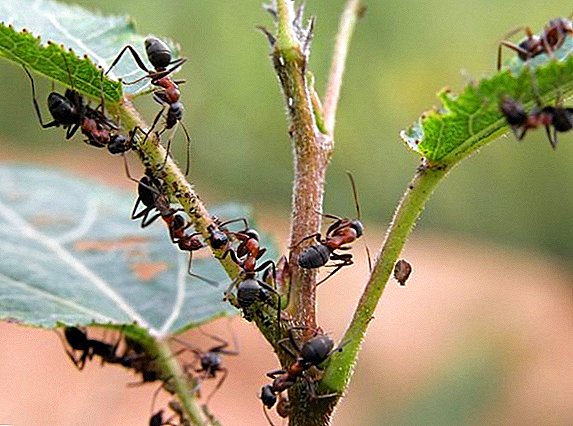 Breeding turkeys is becoming increasingly popular. Birds like turkeys require a special approach. Every livestock breeder should know many nuances of the correct keeping of these birds, including being able to determine their sex. This is necessary in order to properly plan the conditions and strategy of fattening birds for growing, because the female and the male even of one species of birds have a different character and consume different amounts of food.
Breeding turkeys is becoming increasingly popular. Birds like turkeys require a special approach. Every livestock breeder should know many nuances of the correct keeping of these birds, including being able to determine their sex. This is necessary in order to properly plan the conditions and strategy of fattening birds for growing, because the female and the male even of one species of birds have a different character and consume different amounts of food.
If you know the main aspects of the difference, then it will not be difficult. In modern agriculture, there are quite a variety of actively used methods that will help determine the difference between turkey and turkey. We offer you a description of the main methods by which the sex of turkeys is determined.
The main signs of difference between a male and female
Sex determination in turkeys is possible on such grounds:
- over the beard and spurs
- on the ridge and feathers on the tail
- by the presence of a special gland in the neck
- along the length of feathers on the wings.
- by litter quantity.
- by behavior in the herd.
Did you know? Characteristic sounds made by turkeys (in other words, “kuldykane”), are heard for a mile around, and they are inherent only to males. So they attract females and warn other males that the territory is occupied.
The differences on the beard and spurs
The male differs from the female by the presence of a noticeable coarse beard on the head and sharp spurs. The female spurs are very rare, there are only sparsely growing soft feathers. But this method can be applied only at the age of two months, since it will no longer be rational.
Important! The turkey also differs from the turkey in large weight. The turkey has less weight, is sleeker and looks smaller. This method is perfect for early sex determination, because the males immediately look bigger and stronger than the females. And adult turkeys often weigh twice as much turkeys.

There are many breeds of turkeys: bronze wide chest, white wide chest, Black Tikhoretskaya, Uzbek Palevaya.
The difference in the ridge and feathers on the tail
Small Scallop Turkey and it differs faded shade. The male's crest is larger, has a bright color, brilliantly and strongly pronounced in the warm season, especially in spring. Using this method, a two-week turkey poult sex can be determined to within 70%. As for the tail, in females it is less fluffy and less attractive than in males. In the tail of males feathers are flat, dense and beautiful.

The presence of a special gland on the neck
Male turkeys have a pronounced gland on the neck, which can be identified by touch when probing with your fingers. She looks like a wooly dense wart. Most clearly it can be determined when the birds reach five months of age.
Important! This method refers rather to the folk, but not to the scientific. However, it is widespread among livestock breeders and works flawlessly. Moreover, the sex can be determined even if both a turkey and a turkey have approximately the same weight, which happens quite often at the age of half a year. Farmers often prefer this method, because it accurately determines the sex of turkeys.
The length of the feathers in the wings
This method of determining the sex of turkeys can be used when the turkey chick has reached the age of one. If the feathers are in the extreme row on the wing of a chick of the same length, then this is definitely a boy. This method of determining sex has found its application in large farms, poultry farms, households, and it works just fine. But the older the chicks become, the less relevant it is, all because the length of the plumage grows with the wings.
Did you know? Turkeys do not have ears and smell, but they also have good hearing and excellent taste.

By litter quantity
A rather unusual method for determining gender, although effective. At the same time, the age of the birds is completely irrelevant. The method is actively used by American farmers. In the female turkey, as a rule, litter is more abundant and denser, it looks like a litter of chickens: there is quite a lot of it and it lays down a hill.
Other types of poultry are also raised on the plot: chickens, ducks, geese, ostriches, guinea fowls, pheasants, peacocks, quails, and meat pigeons.
By behavior in the herd
The difference between a turkey and a turkey is seen in their behavior. The female turkey is distinguished by its collective demeanor. Females gather in small or large groups, it all depends on the number in the house. It would seem strange, but it is the females who behave more aggressively, unlike the males, who are calmer.
Turkeys can afford to peck other poultry (chicken or rooster) when they gather in a group. Such differences in behavior are characteristic of both adolescents and adult turkeys. This method is in demand only among professionals.

Important! Females and males can be separated from each other already at the age of 5-6 months to protect females from the "pressure" of males, and to avoid injuries, as turkeys mature faster than turkeys.
There are not so many methods to accurately determine the sex of turkeys, but knowledge of certain aspects of the difference will help you to cope with this task easily.
Did you know? Neil Armstrong's first dinner on the moon was exactly roasted turkey, which was sealed in vacuum pouch packaging.












